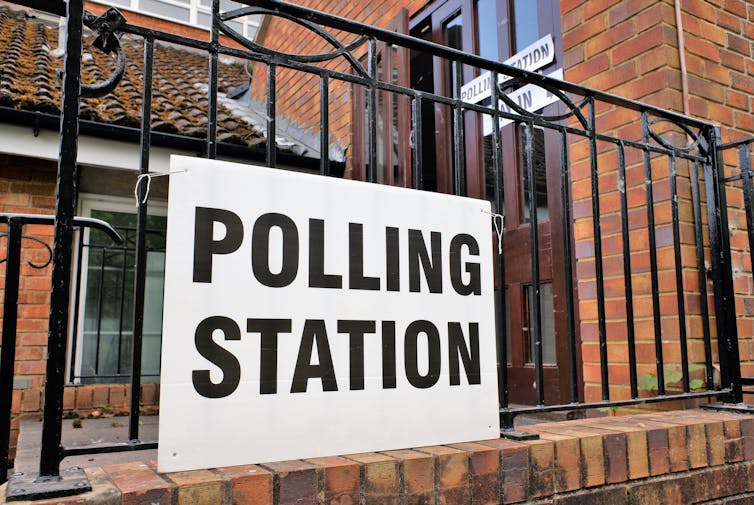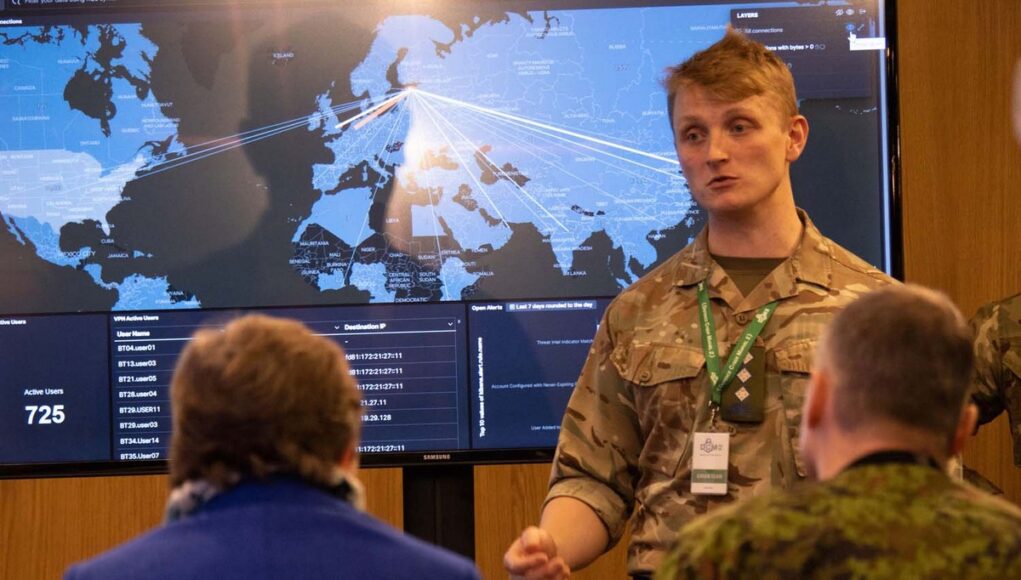The revelations this month that data on 40 million UK voters had been exposed to hackers came as no surprise to many cybersecurity experts, who have long pointed out the vulnerability of democracies to malicious online interference.
In this case, it appears that the data and systems of the UK’s Electoral Commission had been available to hackers for over a year.
There was a significant delay in reporting the incident due to concerns that the voting networks were still not free from malicious presence or interference.
Officials have stated that the integrity of our elections is not under immediate threat, mainly due to the continued reliance across the UK electoral system on paper ballots.
Written by Joe Burton, Lancaster University. This article is the opinion of the author and not necessarily that of the UK Defence Journal. If you would like to submit your own article on this topic or any other, please see our submission guidelines.
However, the attack reflects the serious and ongoing threat to democracies posed by cyber-interference from foreign nations and criminal organisations. The details surrounding this latest attack are still emerging, and the source remains undetermined. But to understand and defend our electoral system effectively against such a threat, three main points need to be considered.
1. Hacking democracy
The first is the determination and creativity of a variety of states to use cyber-attacks to subvert democracy and create mistrust in electoral systems around the world. With elections due next year in the US and UK, protecting the integrity of democratic countries is a growing concern.
We know that Russia, China and other nations including Iran have interfered in elections before – including, most notoriously, Russian hack and leak operations targeting US elections in 2016, which were directed at the Democratic party.
With tensions in the world increasing due to the war in Ukraine, and deteriorating relations between the west and China, leaders in Beijing and Moscow will see cyber-attacks as relatively easy ways to manipulate western countries.

Bumble Dee / Shutterstock
They also see them as a means of casting further doubts on election integrity, planting narratives in public discourse via social media, and attempting to access data on politicians, parties, finance and political campaigns. These methods could be used to swing votes in favour of candidates who might take foreign policy approaches that are more in line with Russian and Chinese interests.
And they may have a new tranche of voter data to help them do just that. As a number of experts have warned, the possibility for the data from this current UK breach to be used in disinformation campaigns is a real fear. While paper-based elections are safer than those using electronic voting machines, that should not lead to complacency about the wider threats to electoral processes from these determined hacking groups.
2. The value of data
The second concern is the wider misuse of data in ways that affect UK national security. Whether it’s electoral databases, banking and finance, the operation of critical infrastructure, or even the research that is produced by our universities, data is an increasingly valuable and exploitable commodity for malicious groups.
Revenue from the sale of illegally obtained data on the internet is growing in line with the increase in the amount of data being generated globally. Hackers have vast repositories of data to target, and can generate revenue from doing so.
Ransomware attacks are often being used alongside a threat to leak or sell the data obtained. This is now a multi-billion dollar business.
3. Delays in disclosure
A third concern is that the reporting of cyber-breaches continues to lag behind the attacks themselves. It may seem surprising to observers of the recent UK incident that it took so long to disclose. This delay constitutes a serious concern for the rights of those electors who have had their data accessed.
But this must be balanced against the operational need to ensure that the systems the data was stored on are free from malicious interference, and to make sure that hackers aren’t still inside the system, having obtained access.
We know that attackers can maintain access to a system over long periods while staying undetected. This approach of “living off the land”, as the US Cybersecurity and Infrastructure Security Agency (Cisa) recently referred to it, is an increasingly common modus operandi for state-supported hackers in particular.
The reputational cost to an organisation after suffering a data breach is often serious and damaging. But when the costs are to the reputation and integrity of electoral processes, a different approach may be required when it comes to public disclosure of the incident.
Being a responsible cyber-power
The UK government has framed its national cyber-strategy around the idea of being a responsible and democratic cyber-power. That responsibility clearly extends to protecting electoral processes from malicious interference.
Currently, government capabilities are battling to keep up with the hackers. The UK’s National Cyber Force (NCF) has a mandate to deter, disrupt and respond to these types of incident, including against both foreign states and criminal organisations.

The National Crime Agency has also stated that “defending the UK’s democratic processes” and helping to “strengthen the cyber-resilience of our electoral systems” is a priority.
But attributing the attacks to specific groups or states is a difficult task. Holding them to any kind of legal punishment has always been challenging, particularly if they are operating with the endorsement of their governments.
Insider threat
There have also been wider concerns in the electoral system around the cybersecurity of political parties and candidates. These combine with concerns citizens have that their democracies are not operating well. This makes it easier for those who seek to undermine public faith in democracy to claim that elections are not being conducted fairly, and are not free from foreign interference.
Disinformation about the integrity of elections, both from within and outside the UK, will find greater traction in the wake of these types of incident.
The viability of the UK to hold cybersecure elections in the near-future will be the product of work by the cybersecurity community now. A renewed effort to provide our electoral system with the tools to secure their networks, including giving direct support to political parties, candidates and civil society, is clearly needed.![]()
Joe Burton, Professor of International Security (Security and Protection Science), Lancaster University. This article is republished from The Conversation under a Creative Commons license. Read the original article.














The problem with computer security across the world (and not just in the UK) is people are lazy. I sort out computers for friends who know SFA. And it never fails to amaze me how few subscribe to the most basic tenets of computer security, be it not using a Anti-virus program (And even then a load will only use few versions) using the most basic passwords and worse of all sharing such info without a care in the world all on computers where they do their banking. (that said 2-step verification for banking is a step in the right direction)
That mindset is then then transferred to the workplace, where very little effort is made for online security (So how many here know people who write their log in and password on a post it affixed to the screen) share passwords (advertently or inadvertently) or leave their work station without locking it down.
Then there are the so called IT staff used by big businesses who simply are not fit for purpose (Looks at the NHS) who time and time again have ignored government warnings and then surprise, surprise, they find they have been locked out of the system.
We should all look across the water at how Estonia after getting hacked by the Russians in 2007 linked in computer defence to national security. Resulting in a much stronger network seen as one of the most robust in the world where all interactions with the government (including voting) can be done on line this entails everybody been issued with a digital chip and pin ID card which has to be used to interact with the government intranet. Makes life so much easier, meanwhile in the Uk, the do-gooders see ID cards as a abuse of human rights.